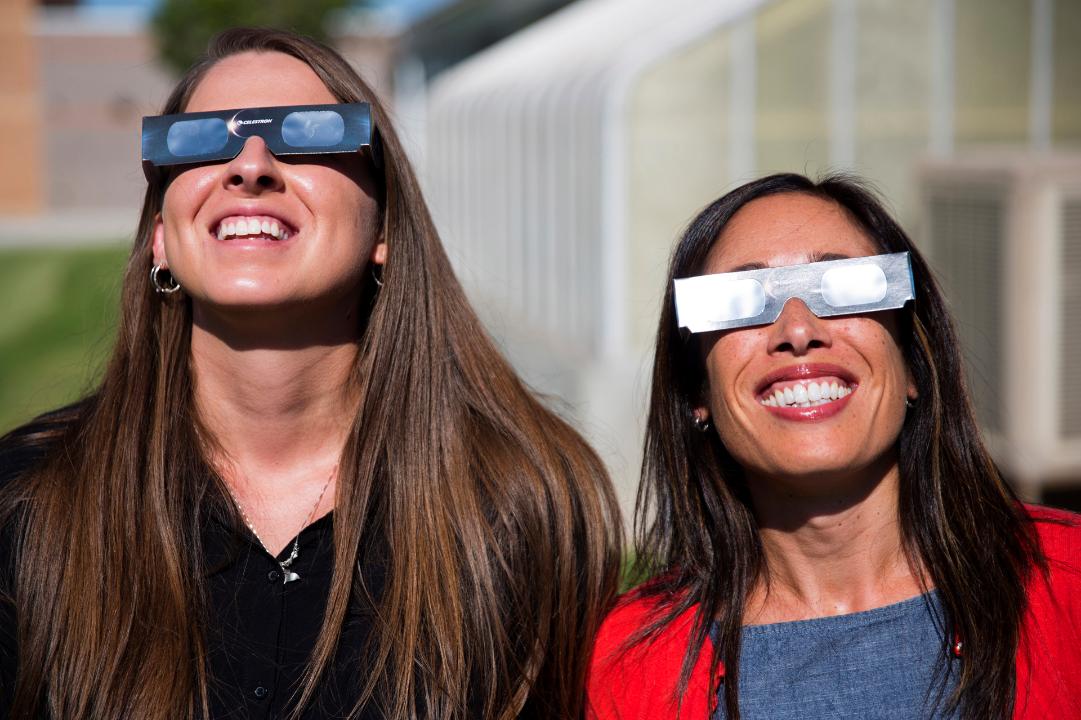Solar eclipse scams: Don’t get duped into buying fake glasses
Millions of spectators are expected to flock to cities across the U.S. next week to witness the ultimate light show: the total solar eclipse. And while the chance to see the Moon pass between the Sun and Earth is a rare one — the last time it happened was about 40 years ago — many experts warn onlookers not to get duped —especially when it comes to buying protective glasses for the event.
“We should have anticipated that some unscrupulous people would try to cash in on the eclipse with no concern for public safety. It’s one thing to sell T-shirts with logos that you don’t have permission to use — nobody really gets hurt. It’s quite another to sell eclipse glasses or other types of solar viewers that are not known to be truly safe,” Rick Fienberg, a spokesman for the American Astronomical Society (AAS), tells FOX Business.
Earlier this week, AAS updated its safety advice on purchasing glasses and released a list of approved vendors in response to alarming reports of unsafe “eclipse viewers” popping up online, the company said.
“I have personally seen counterfeit glasses from China that have the logo, name, and address of a U.S. manufacturer but that were NOT produced by that manufacturer and are NOT known to be safe. They actually give a fine view of the Sun, but I have no idea if they’re blocking sufficient amounts of invisible ultraviolet and infrared radiation as required by the ISO 12312-2 international safety standard,” Fienberg says.
NASA also released its own safety guide warning bystanders about the dangers the Sun’s rays could cause to your eyesight down the road.
“Do not look at the sun through a camera, a telescope, binoculars, or any other optical device while using your eclipse glasses or hand-held solar viewer — the concentrated solar rays will damage the filter and enter your eye(s), causing serious injury,” NASA said.
Fienberg adds that “genuinely” safe solar filters will block at least 99.999% of the Sun’s visible and ultraviolet light and at least 97% of the Sun’s infrared radiation.
Counterfeit glasses, he says, appear to block enough visible light to provide a comfortable view of the Sun, but that can really be “done with any sufficiently dark plastic.”
“Genuinely safe solar filters are made from special materials engineered to block appropriate amounts of UV and IR radiation too. Our retinas don’t have pain receptors, so if you look through unsafe filters, you could think you’re having a fine view of the Sun when in fact your retinas are being injured, something you won’t realize till it’s too late,” he adds.
Some of the places that AAS recommends to shop online are EclipseGlasses.com, Celestron, Explore Scientific and Meade Instruments. The organization also has a list of retailers that include 7-Eleven, Best Buy, Lowe’s and Walmart, that stock glasses made by verified manufacturers at some but “not all” locations.
Additionally, buyers should be skeptical of glasses that are stamped with an ISO (International Organization for Standardization) seal because some companies are now printing the logo and certification label on glasses and handheld solar viewers.
AAS says its best tip for testing if your glasses are safe is when you put them on, “you shouldn’t be able to see anything…except the sun itself.”




















